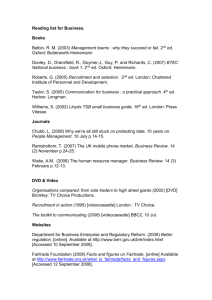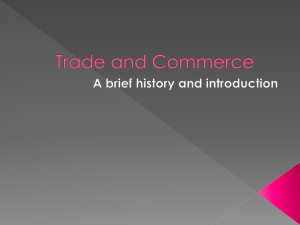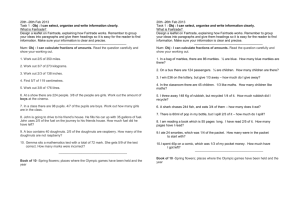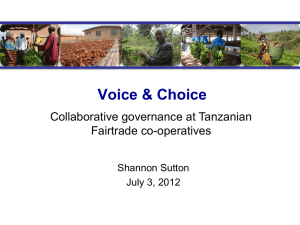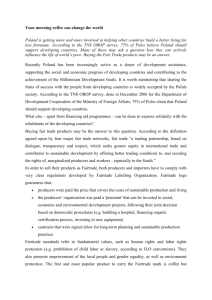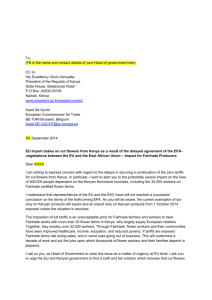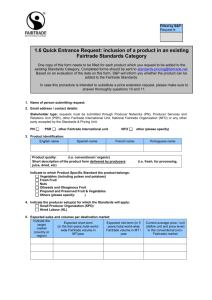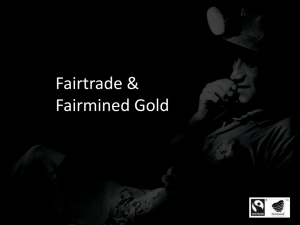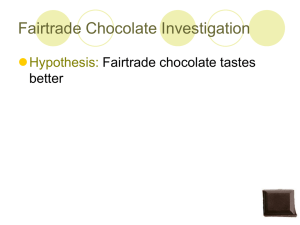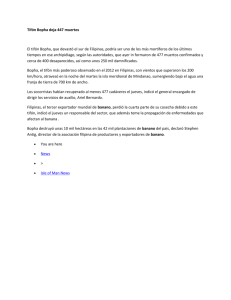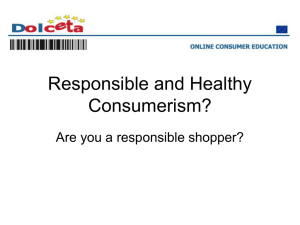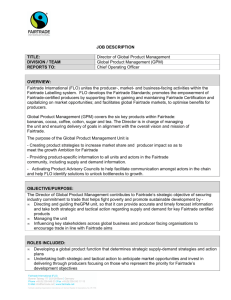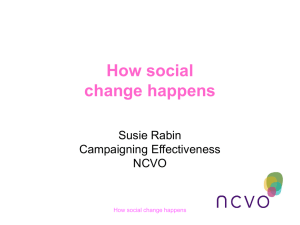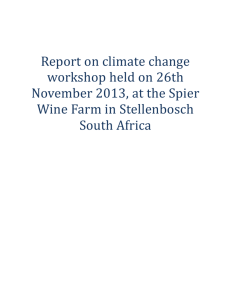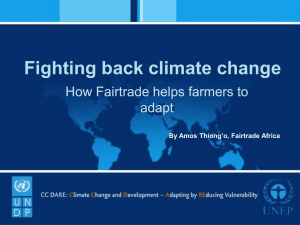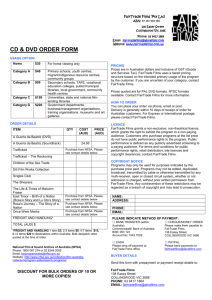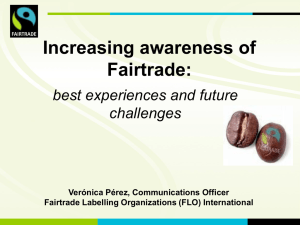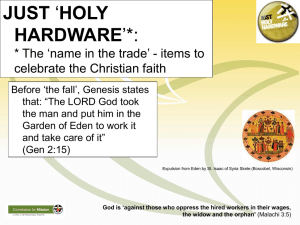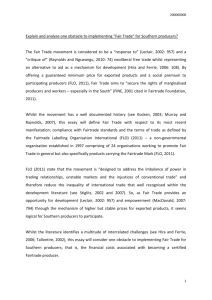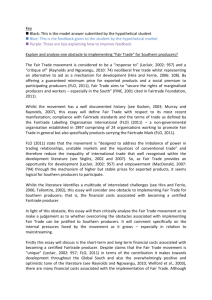What is Fair Trade? Learning Objectives
advertisement
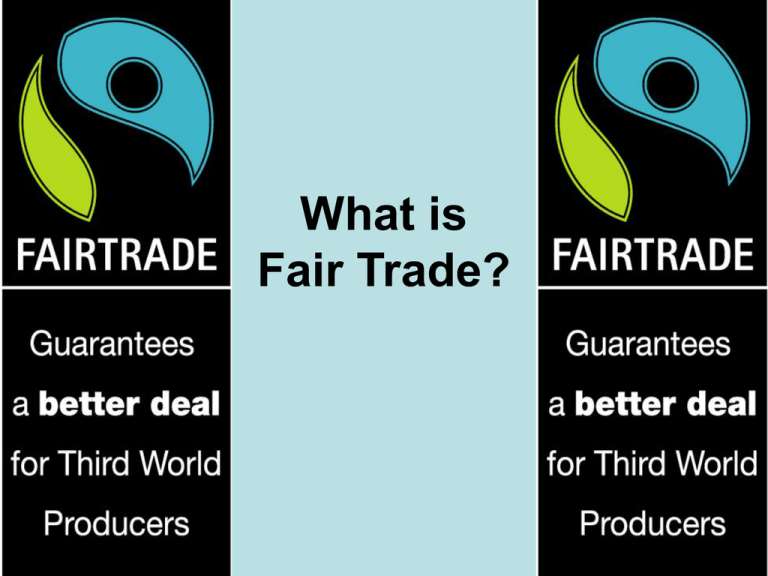
What is Fair Trade? Learning Objectives • To consider different methods of reducing global trade inequalities. • To understand how the ‘Fairtrade’ organisation operates. • To know about the different criteria that means that a product is ‘Fairtrade’ Learning Outcomes • To have looked at natural and man made problems farmers in the developed world face. • To have ranked solutions to these problems in order. • To have compared the Fairtrade criteria against different products. Fairtrade Friday 19th January • Number from 1 to 8 on your paper. • You are going to see quotes about the problems faced by farmers in the developing world. • For each one state what the problem is and if it is caused by the natural world or by other people. One hurricane or volcano can ruin all the banana trees. Our houses are in terrible condition but if we complain to the estate manager we will lose our job Our pay is so low we grow marijuana for more money but this is illegal. Mealy bugs can destroy 25-30% of the cocoa crop every year. When cocoa prices fall we can only buy medicine for members of the family who work Children have to work and don’t go to school. Coffee prices are so low we have been forced to leave our land and find work in the cities Pesticides cause leukaemia and babies born with deformities How can these farmers be helped? Does the UK have a role to play? • • • • • Read the statements on your paper. Rank them in order from 1 to 9. 1 means that you strongly agree 9 means that you strongly disagree. Be prepared to justify your choice to the rest of the class. Key Words • Fairtrade: Paying farmers in the developing world a fair price for their produce. • Fairtrade Mark: A consumer label • LEDC: Less economically developed • MEDC: More economically developed • World Bank: Provides loans to poorer countries for projects to help reduce poverty. • World Trade Organisation (WTO): Sets rules about trade to make it easier for countries to sell to one another. Fairtrade Criteria 1. The price paid covers the cost of production. 2. Workers on plantations have decent wages, housing and health and safety standards. 3. No child labour is allowed. 4. A percentage of the money earned is used by the producers to improve their living and working conditions. 5. Producers treat the environment in a sustainable way. 6. There are organisations to help and support workers eg: trade unions and co-operatives. 7. Contracts make long-term planning for sustainable development. 8. Advance payment is made so that the producers do not fall into debt. • Is the mark a good idea? • Would you pay more for Fairtrade products? • What is the best way to get supermarkets to stock Fairtrade products? Which products meet the Fairtrade Mark? • Page 116 to Page 117 • You work for the Fairtrade Foundation and have to decide whether products should be awarded the Fairtrade Mark. Fairtrade Criteria 1. The price paid covers the cost of production. 2. Workers on plantations have decent wages, housing and health and safety standards. 3. No child labour is allowed. 4. A percentage of the money earned is used by the producers to improve their living and working conditions. 5. Producers treat the environment in a sustainable way. 6. There are organisations to help and support workers eg: trade unions and co-operatives. 7. Contracts make long-term planning for sustainable development. 8. Advance payment is made so that the producers do not fall into debt.
